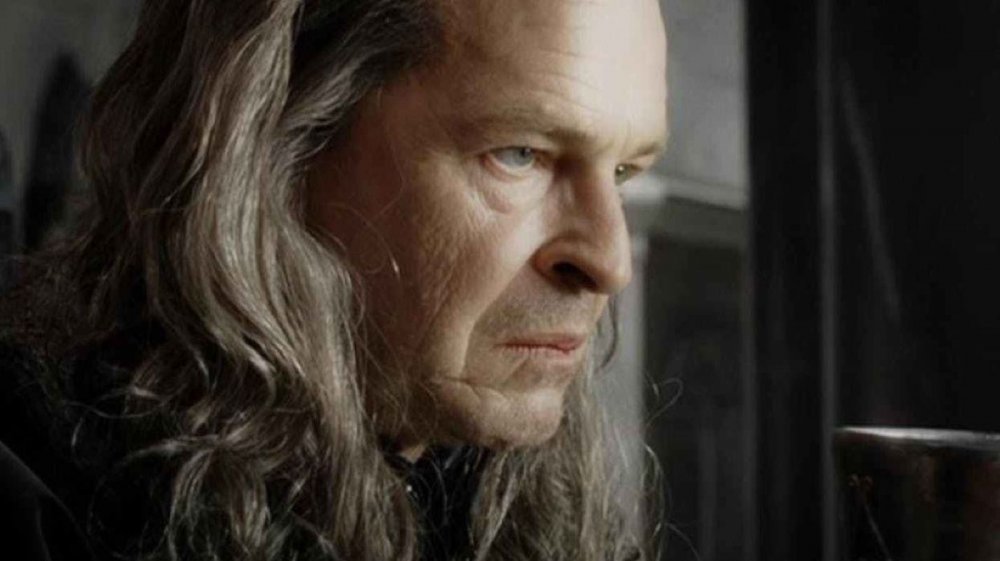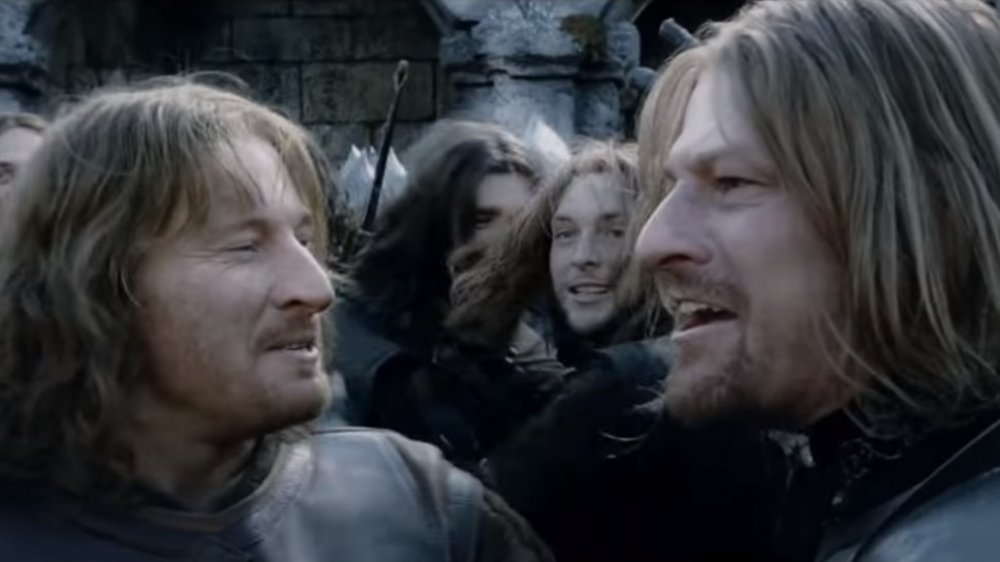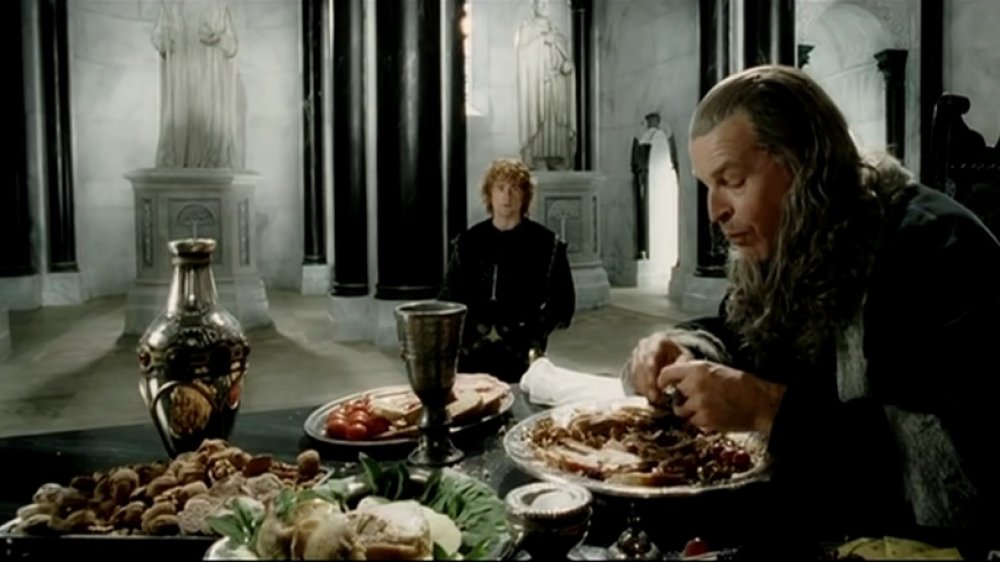Why Sauron Wasn't The Actual Villain In Lord Of The Rings
Whether reading the books, watching the movies, or watching the extended movies, the Lord of the Rings story is so expansive that you'd be forgiven for forgetting some of the myriad names, places, and other various details about Middle-earth. As Lady Galadriel (Cate Blanchett) says in the opening to The Fellowship of the Ring, "Much that once was, is lost... for none now live who remember it."
One thing that's hard to forget, though, is the looming menace of Sauron. Though not often seen, his presence weighs on every step Frodo (Elijah Wood) and company take towards the fires of Mount Doom. An endless number of orcs stand at his beck and call, ready and willing to prevent the Fellowship from reaching Mordor at all costs. His great Eye keeps watch over all the land, a constant reminder to stay vigilant or die trying. He's as purely evil as evil gets.
Yet for all that, there's a notable difference between a pure force of evil, and a true villain. The former is a little more mysterious, oppressive in the broadest of terms. The latter is more tangible, often with some sort of personal connection to the heroes. By that token, Sauron can't rightly be called a villain, but there's one man in Lord of the Rings who fits the description perfectly: Denethor (John Noble), Steward of Gondor.
Denethor, father of war heroes
The word "trope" understandably sets off alarms in many people's minds, as it's intimately connected to its oft-ridiculed cousin "cliche," but a trope done well is a commendable thing. Lord of the Rings is certainly no stranger to tropes: cultural differences between dwarves and elves, a hero secretly descended from a royal bloodline, a bearded old wizard ... the list goes on. Denethor himself fulfills the trope of the bad father to the fullest.
In a flashback scene in The Two Towers, Denethor shows up after his sons Boromir (Sean Bean) and Faramir (David Wenham) have secured the city of Osgiliath. The brothers are obviously close, laughing and drinking in celebration of the victory: Denethor's arrival sours the mood faster than Legolas' (Orlando Bloom) arrows fly. All three men know that Boromir is the favored son, but Boromir refuses to brook his father's insults to Faramir. Denethor cares so little for Faramir that he pulls Boromir aside to have the conversation he actually came for — retrieving the One Ring for safekeeping in Gondor — separately.
In The Return of the King, Denethor is left with only Faramir, as Boromir died defending Merry (Dominic Monaghan) and Pippin (Billy Boyd) after narrowly overcoming the corruption of the Ring. Riddled with despair, Denethor sends his "useless" son to recapture Osgiliath, which has since been overrun. The battle leaves poor Faramir unconscious, and Denethor is quick to take advantage, proclaiming his son dead and ordering a funeral pyre — on which he himself also plans to burn, believing all hope to be lost in the ongoing war. Gandalf (Ian McKellan) and Pippin save Faramir, but Denethor embraces the fire, committing suicide and ending his misery.
Not a father Faramir is likely to speak fondly of, to his children.
Denethor is Middle-earth's worst leader
Unfortunately, Denethor does more than fail in his fatherly duties before his death: he's also one of the most incompetent leaders ever committed to the screen. Funnily enough, this is not true of him in Tolkien's books. Still, in a world that boasts leaders like Aragorn (Viggo Mortensen), Gandalf, and, yes, Faramir, Denethor's messy governance is almost impressive in a hard-to-watch kind of way.
In one of the most hauntingly beautiful scenes in the trilogy, taking place before the climactic battle at Minas Tirith, Denethor's selfishness is put on full display. He's already sent Faramir to Osgiliath, knowing full well it's likely a suicide mission. Rather than allaying the fears of his people, or devising Gondor's next step, he gorges himself on a lavish feast, forcing Pippin to sing a song for him. The film cuts between disgusting shots of Denethor wolfing down his food and Faramir leading his army to battle.
When Minas Tirith is irrevocably in dire need of assistance against the invading armies of Sauron, there's a convenient way to call for help at Denethor's disposal: a series of beacons which, when set aflame, signal allied cities for aid. Yet Denethor refuses to light the beacons, confident that Gandalf will remove him from the throne by calling Aragorn, who has a blood right to the crown. Thus, Minas Tirith is beset by Mordor, causing more citizens and soldiers to lose their lives than necessary.
Denethor's villainy lies not in ruling over his people with a tyrannical iron fist, but in his self-absorbed aloofness. All he cares for, in the end, is his own comfort. Having a worldview so small, in a land as big as Middle-earth, is why he ultimately gives in, to despair. A sad life for a sad man.


